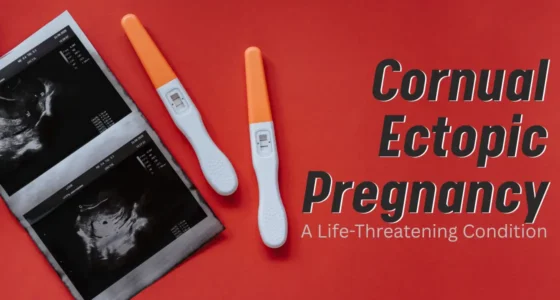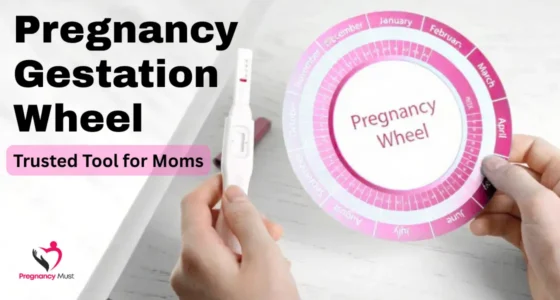Diarrhoea in third trimester is a common symptom that many pregnant women experience as their body prepares for labor. Let’s dive deep into this condition to deal with.
Table of Contents
- What is Diarrhoea in the Third Trimester?
- Causes of Diarrhoea in the Third Trimester
- Risks Associated with Diarrhoea in the Third Trimester
- Symptoms When to Worry in Case of Diarrhoea in the Third Trimester
- Indicators of Preterm Labor
- Safe Treatments for Diarrhoea in Third Trimester
- Prevention Tips for Third Trimester Diarrhoea
- Complications of Diarrhoea During Third Trimester
- When to Call the Doctor- Diarrhoea in the Third Trimester
- FAQ: Diarrhoea in Third Trimester
- Diarrhoea in Third Trimester—Key Takeaways
What is Diarrhoea in the Third Trimester?
Diarrhoea in third trimester refers to frequent, loose, or watery stools occurring during the last three months of pregnancy. Weeks between 29 and 40 are characterized by dramatic changes in hormones and the fact that a body is getting ready to have a baby and this can affect the digestive system.
Causes of Diarrhoea in the Third Trimester
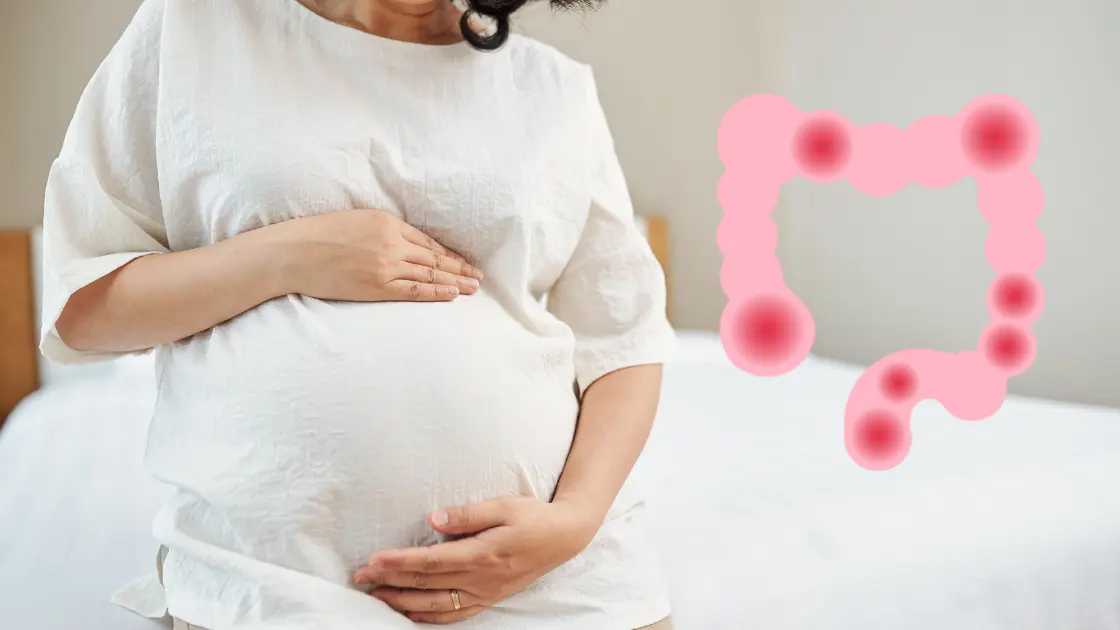
1. Hormonal Changes
During the third trimester, the cervix is softened and dilated due to the body releasing the prostaglandins. These hormones also increase intestinal muscle contractions, speeding up digestion and causing loose, watery stools, which leads to third-trimester diarrhoea.
2. Higher sensitivity and Food consumption
Pregnancy may change the tastes and smell, giving birth to food aversions or food cravings. Transferring or initiating prenatal vitamins can cause irritation to the digestive system. This increased sensitivity can upset the stomach or intestines, resulting in diarrhoea during third trimester.
3. Infections and Food Poisons
The immune system of pregnant women is slightly suppressed, so that they become more vulnerable to such types of infections as bacteria, viruses, and parasites, which are often acquired with the help of contaminated food. These infections cause inflammation in the gut that results in more fluid being released and thus trigger diarrhoea and therefore good food hygiene is very vital.
4. Pre-existing Conditions
Certain conditions, such as Irritable Bowel Syndrome (IBS), are chronic gut problems that may intensify in the late stage of pregnancy in women. Due to hormonal and physical changes, as well as the stress on the digestive system, diarrhea flare-ups may be initiated.
They may individually or collectively lead to diarrhoea in third trimester and thus one should watch out on these symptoms, and consult medical services in case its persistent or in case of worsening.
Risks Associated with Diarrhoea in the Third Trimester
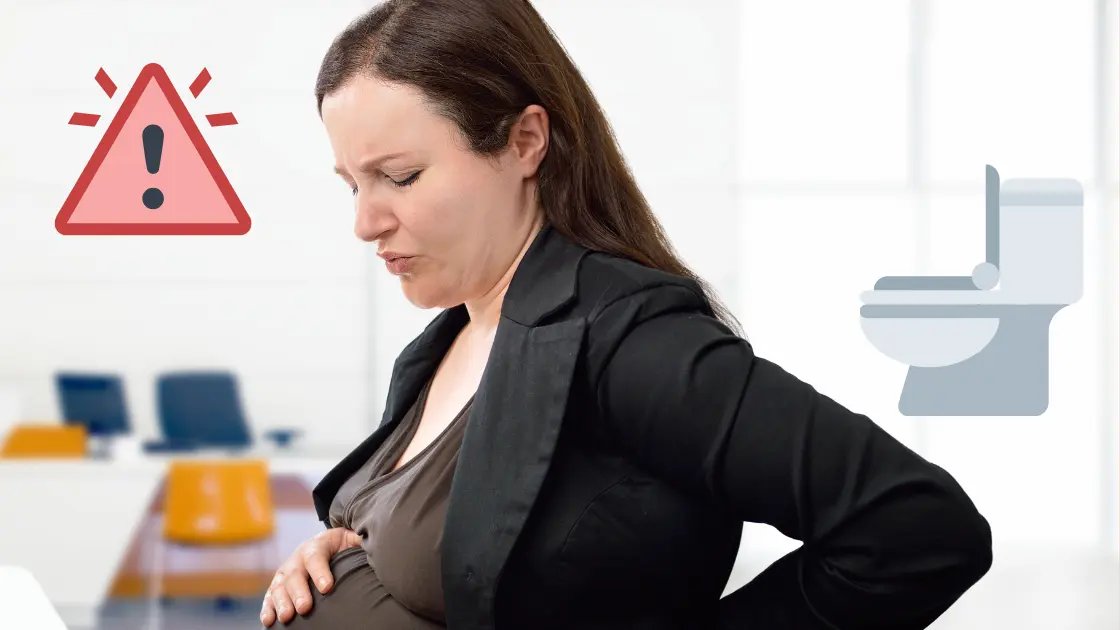
| Risk Factor | Potential Complication |
| Dehydration | Reduces amniotic fluid, affects fetal protection/development |
| Nutritional Deficiency | Impacts maternal and fetal nutrient levels |
| Preterm Labor | Severe diarrhoea may trigger contractions/labor |
| Fatigue | Ongoing diarrhoea can cause exhaustion and weakness |
| Infections | Can lead to severe adverse birth outcomes |
Symptoms When to Worry in Case of Diarrhoea in the Third Trimester

Greater than 23 diarrhoea of 23 or more days
Severe fluid loss and loss of nutrients can occur because of prolonged diarrhoea. When diarrhoea lasts longer than this period, it can lead to or dehydration, infection or other underlying health problem that needs medical diagnosis.
Indications of dehydration: parched mouth, wooziness, obscure urine
Such signs suggest that your body is experiencing a situation in which it is undergoing excretion of fluids in excess of the amount being retained, a major issue during pregnancy.
- Dry mouth which means a low quantity of saliva and moisture, and normally, it is one of the first dehydration symptoms.
- Dizziness is an area that occurs as a result of a depleted amount of blood as well as reduced oxygen delivery to the brain because of fluid loss.
- The dark urine shows that the urine is concentrated because of low fluid consumption or too much fluid loss, which is a definite sign of being dehydrated.
- Due to dehydration, there is a risk of reduced amniotic fluid and harm to the well-being of the mother and baby.
High fever (more than 38 degrees Celsius)
Such a high fever is usually indicative of infection, which may be a causative factor or an effect of diarrhoea. During pregnancy, infections can pose even greater dangers, and thus, a high fever will require immediate medical care.
Acute pain or persistent cramps in the abdomen
This could be an indication of severe complications in the intestines, such as infections, inflammation, or complications of the uterus, including premature birth. Chronic or severe pain cannot be disregarded.
Toilet blood or mucus in the stool
The presence of blood or mucus implies inflammation, an infection or some other gastrointestinal issues like colitis or hemorrhoids. It has to be medically examined to rule out the serious causes.
Indicators of Preterm Labor
There are some of signs that could point to the beginning of labor prior to 37 weeks of pregnancy. Occasionally diarrhoea in third trimester but when it is accompanied by such indicators, it requires immediate assessment to address the risks of the outcome to mother and baby.
These signs mark when diarrhoea in third trimester may be more than a minor issue and requires medical attention to prevent complications such as dehydration, infection, or preterm labor.
Does Diarrhoea Mean Labour?
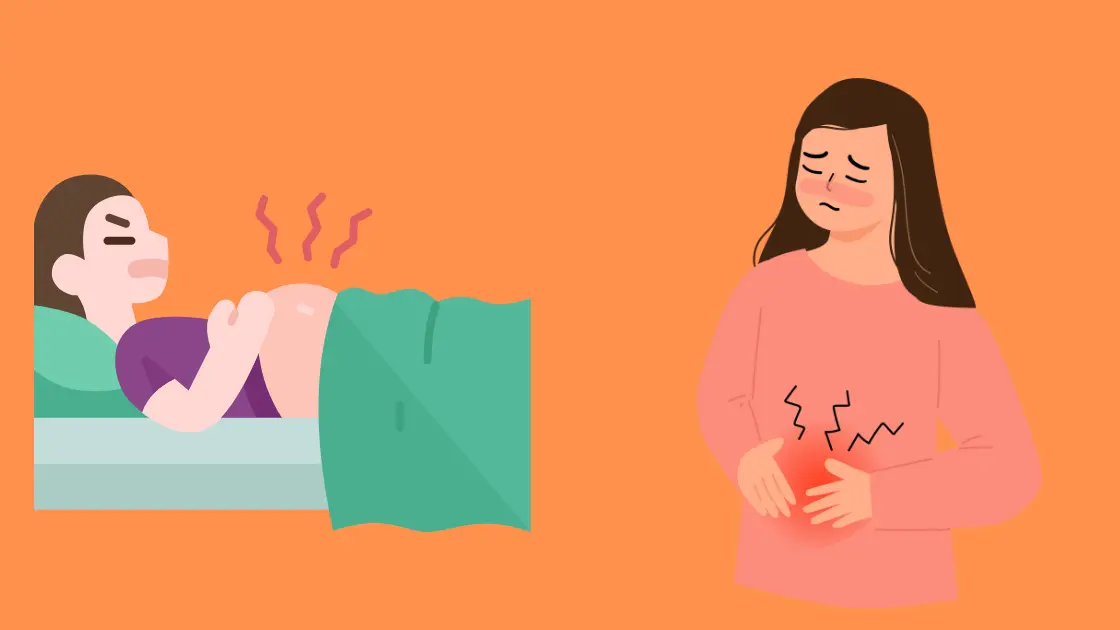
Diarrhoea in third trimester can sometimes be a pre-labor sign, especially if occurring with other symptoms such as:
Dropping of the baby (more pressure on the bladder)
This is the process of the baby descending further into the pelvis of the mother which is also called lightening. Normally, it occurs a few weeks prior to labor during the first time and even immediately prior to labor during the subsequent ones. There is usually more pressure on the baby as one moves down which makes one go to the bathroom regularly and a visible difference is felt on how the belly appears and feels.
Mucus plug loss or bleeding shows
A thick wall of mucus covering the cervical canal is called the mucus plug during a pregnancy period, which prevents the inflammation of the uterus. Once the cervix starts dilating and softening (effacement) to prepare for giving birth, this plug is lost through the vagina, either in a single time period or over the course of several days. Its passing is colloquially called the bloody show since this process could be characterized by some spots of blood. This is an indication that work may be hours and days away, and not necessarily at the exact moment.
Breaking of water
This is the breaking of the amniotic sac i.e. the sac around the baby which is full of fluid. When the water breaks, liquids come out of the vagina and this liquid could be in a gush or dribble. It is a good sign that contraction will follow shortly or it has already started and it is advised to seek medical help even when the contraction has not yet set in.
Regular contractions
Real labor pains are frequent, become stronger with time and never diminish during rest or water intake. They tend to become separated and more intense as the uterus tends to contract in order to dilate the cervix and push the baby down the birth canal. They are an indication that active labor is beginning particularly when there is a pattern (i.e., occurring every five minutes).
Safe Treatments for Diarrhoea in Third Trimester

Home Remedies
Drink Enough Fluids
Drink a lot of water, oral rehydration powders, and clear broths will replenish the fluid lost and maintain the electrolytes.
The body also loses much fluid and vital electrolytes such as sodium, potassium, and chloride when diarrhoea is experienced. It is important to drink a lot of fluids; otherwise, dehydration during pregnancy affects both the baby and the mother. Plain water facilitates water replacement, hence losing fluids, and may not be enough as a stand-alone replacement therapy relative to electrolyte balance. The design of the oral rehydration solutions (ORS) enables them to be designed with the correct proportions of salts and sugar in such a way that they lead to the rapid replacement of fluids and electrolytes. Clear broths hydrate and to some degree are nutritious and contain salt, which keeps the mineral balance of the body at a healthy range in an instance of diarrhoea.
BRAT Diet
The BRAT diet has bland, low fibre, and easily digested food which lowers irritation in the gastrointestinal tract.
- Bananas contain potassium which is a vital electrolyte reduced when there is diarrhoea and soluble fibre in banana aids in absorbing excess liquid in the bowel.
- Rice contains a binding effect that makes it easy on the stomach, reducing the likelihood of loose stools.
- Applesauce has pectin, which is a class of soluble fibers that helps to solidify bowel movements. It is not as harsh as a whole apple, which has insoluble fiber and may cause irritation.
- Plain bread (white is easiest to digest) in the form of toast can form bulk in stool without a secondary upset.
The diet is used to calm the bowel and address diarrhoea until the bowel returns to normal.
Avoid triggers: During an episode, avoid fatty, fried, spicy foods and most dairy products.There are some foods that make diarrhoea worse by either irritating the stomach or accelerating digestion.
- Fried food and fatty food are more difficult to absorb and may increase the irritation of the gut or abdominal cramps.
- Spices and other spicy foods are found to irritate the digestive tract and induce high motility due to the presence of compounds such as capsaicin.
- Dairy products can sometimes be poorly digested in the course of diarrhoea, and in cases of the development of temporary lactose intolerance because of the inflammation of the gastrointestinal system. This may cause additional loose motions or uneasiness.
It is possible to avoid such triggers to prevent the severity of the symptoms and give the gut time to repair.
Medical Care
Never take medicine (e.g., loperamide/Imodium) without consulting your physician because many drugs are unsuitable for use during pregnancy. Probiotics have the potential to restore gut health, though you need to consult your provider first. Consult a doctor as soon as possible, in case of the persistence or aggravation of the symptoms.
Disclaimer: Do not self-medicate and/or take over-the-counter antidiarrheal medication without consulting your obstetrician.
Prevention Tips for Third Trimester Diarrhoea
- Good hygiene: Everyone must maintain good hygiene; this should include regular washing of hands use of the toilet and before meals. With good hygiene, germs are washed away and infections (which may lead to diarrhoea) prevented.
- Consume thoroughly cooked food: Consume cooked food and not half-cooked food, it is better to consume well cooked meats, seafood and unpasteurized milk because they may carry harmful bacteria or parasites that tend to cause gastrointestinal infections in pregnancy.
- Avoid known allergens: Foods that often cause stomach irritation or aggravation of diarrhoea during the third trimester include spicy foods, greasy or very rich foods.
- Fluids: Drinking regular sips of water, teas, and other non-caffeinated drinks keep the body hydrated and electrolyte balanced, an essential part of the body when going through diarrhoea.
- Change to mild prenatal supplements: It is possible that your current prenatal pills are too hard on your stomach and are making you feel queasy, or you might be subjected to constant diarrhea. In that case, consult your doctor to switch to soft prenatal supplements.
Complications of Diarrhoea During Third Trimester
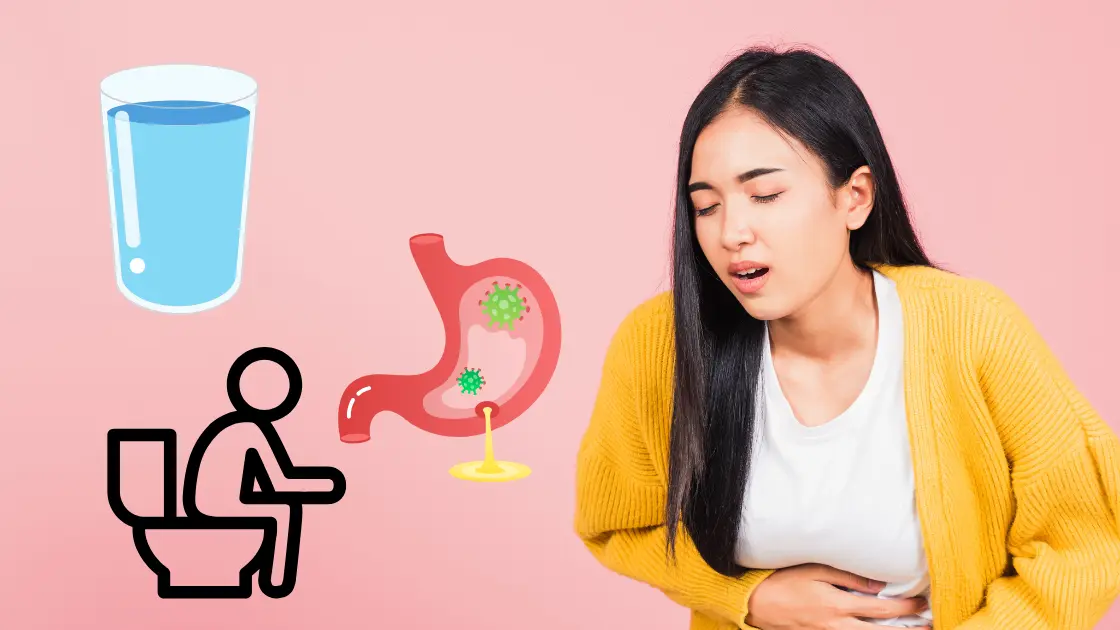
Preterm Birth
In cases of severe diarrhoea, particularly when it is due to infections or dehydration, uterine contractions may be provoked, and premature labor may set in before the 37th week of the pregnancy. This low birth weight can be a health hazard to this baby since it is not fully formed.
Malnutrition in Fetus
Prolonged diarrhea may cause a lack of nutrients being absorbed by the mother and failure to consume a sufficient amount of food. This is a maternal deficiency that may consequently impact on the growth and development of the fetus negatively thereby resulting in low birth weight or other developmental issues.
Hospitalization
Though it does not happen frequently, hospitalization might be required in case the mother has severe or persistent dehydration, an infection that needs intravenous medication, or other issues. In hospital treatment, both mothers and babies can be watched over and stabilized as fluids are maintained and replacement fluids are given.
When to Call the Doctor- Diarrhoea in the Third Trimester
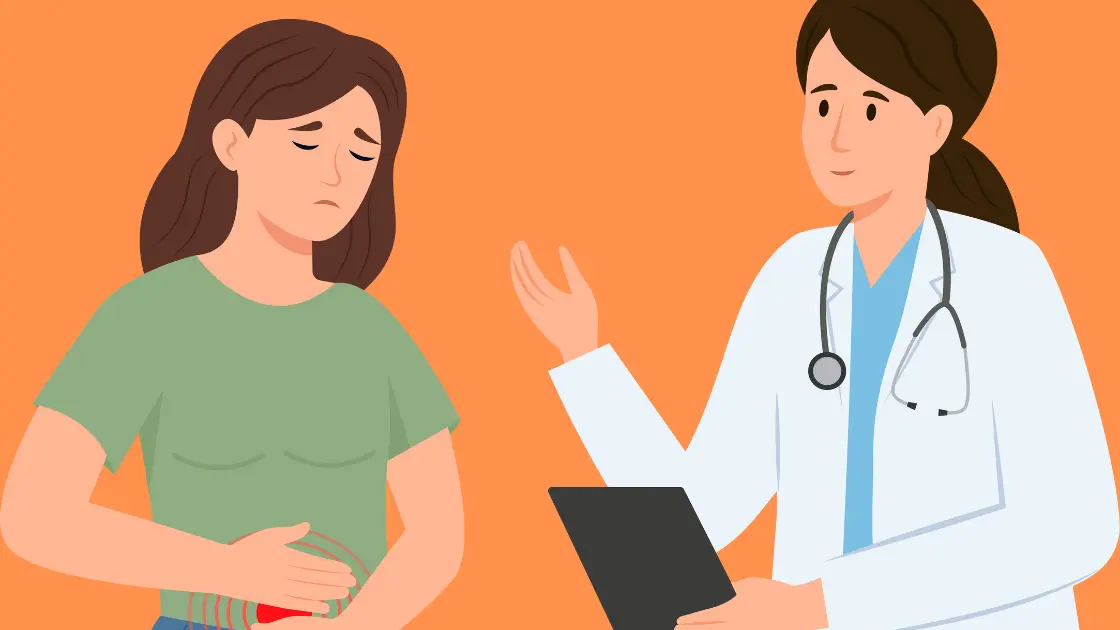
-
Continuous diarrhoea beyond 48-72 hours
This prolonged diarrhoea predisposes people to dehydration and loss of essential nutrients. When symptoms fail to alleviate after two to three days then it can indicate severe infection or a pre-existing problem that needs to be examined and addressed by a medical professional.
-
Strong stomach cramps or pains
Acute or persistent abdominal pain may not be a symptom of basic diarrhoea. It can be an indication of infection and inflammation, or even preterm labor. Pain should not be disregarded, especially when it is severe during pregnancy.
-
Elevated temperature or blood in the faeces
The presence of high fever (greater than 38°C) is an indicator of the possibility of infection, which in both the child and mother, would be detrimental. When the stool contains blood, it may indicate an infection, inflammation, or even severe bowel diseases that one needs to address with immediate medical attention.
-
Dehydration symptoms such as the inability to retain fluids
Moderate to severe dehydration causes such symptoms as dry mouth, extreme thirst, little to no urine output, dizziness, or inability to keep fluids down. This may be hazardous to the mother and the unborn child, and this necessitates prompt medical attention.
-
Before 37 weeks of age, Labor signs
Preterm labor occurs when the symptoms of labor (i.e., the consistent contractions, breaking of water, or the pressure of the pelvic region) are experienced earlier than 37 weeks. Whenever these symptoms manifest, particularly in combination with diarrhoea, the expert care of a doctor becomes imperative to save the well-being and safety of the mother and the infant.
FAQ: Diarrhoea in Third Trimester
1. What is the frequency of the third-trimester diarrhoea?
Third-trimester diarrhoea is relatively common, especially near the due date, mostly due to hormonal changes.
2. Will it be harmful to my baby in case of diarrhoea?
And short episodes usually are not harming your baby, but the long-lasting diarrhoea may result in dehydration and nutritional Deficiency, making the baby at risk of getting complications.
3. Should I take medication for third-trimester diarrhoea?
Do not use medicines prescribed by other clinical professionals. The majority of the cases go away without treatment, and tough or recurring symptoms require medical intervention.
4. Is it possible that diarrhoea indicates labor?
Other times, particularly when you are within a few days of your due date or when you have other signs of labor.
5. What’s the best way to stay hydrated with diarrhoea during the third trimester?
Drink water regularly and experiment with oral rehydration salts and hydrating foodstuffs (such as watermelon and cucumber, assuming this does not cause problems).
6. What do I do to know whether it is due to infection or pregnancy hormones?
In case of fever, vomiting, or even suspicion of food poisoning, consult a physician since infections are more severe when pregnant.
Diarrhoea in Third Trimester—Key Takeaways
- Diarrhoea in third trimester is often caused by hormonal shifts, dietary changes, or infections.
- Mild cases can be managed by being hydrated and eating a bland diet (BRAT).
- If the symptoms or signs persist, consult a health professional.
- The patient should not self-medicate and should consult their healthcare provider in case of doubts.
Explore more on Pregnancy Must –



